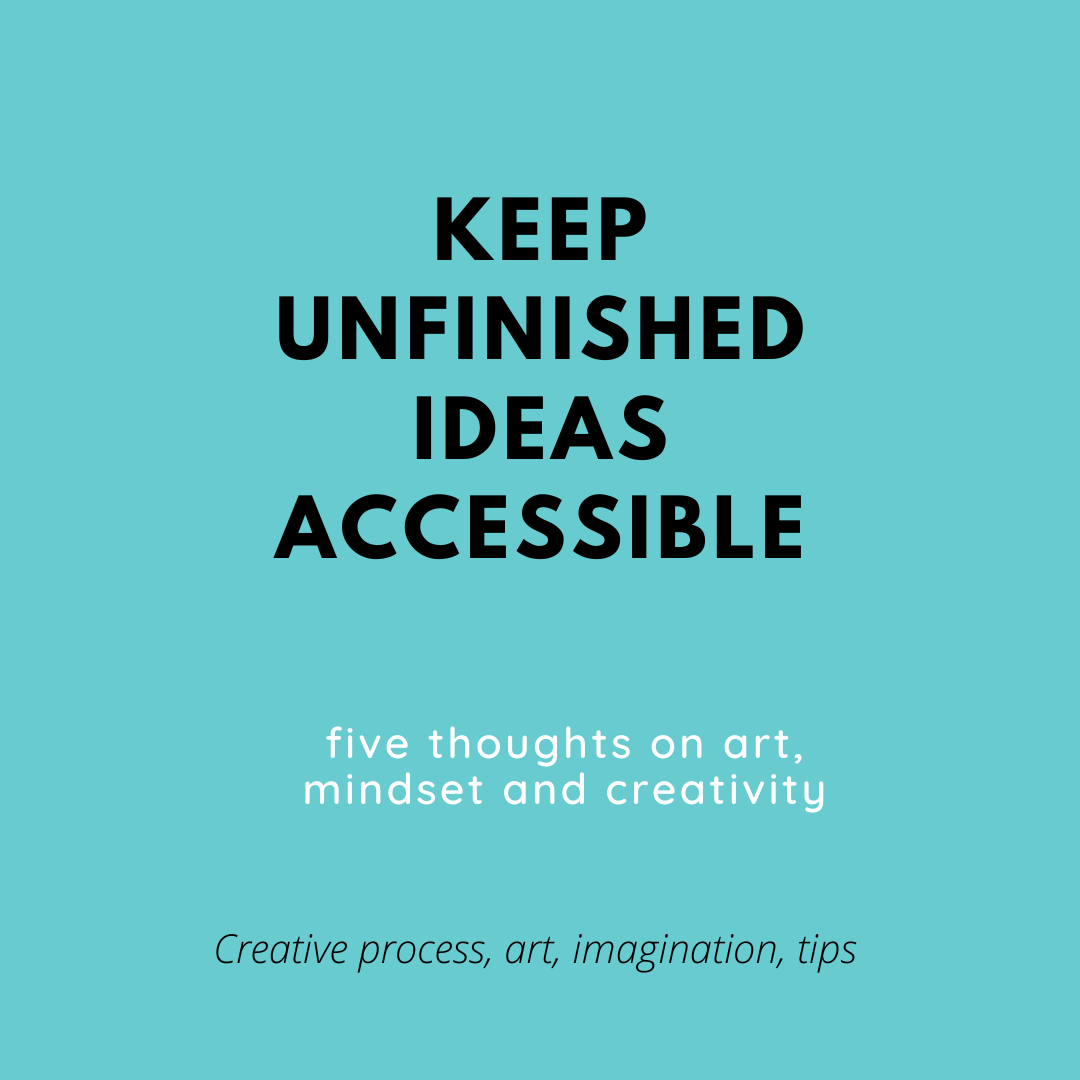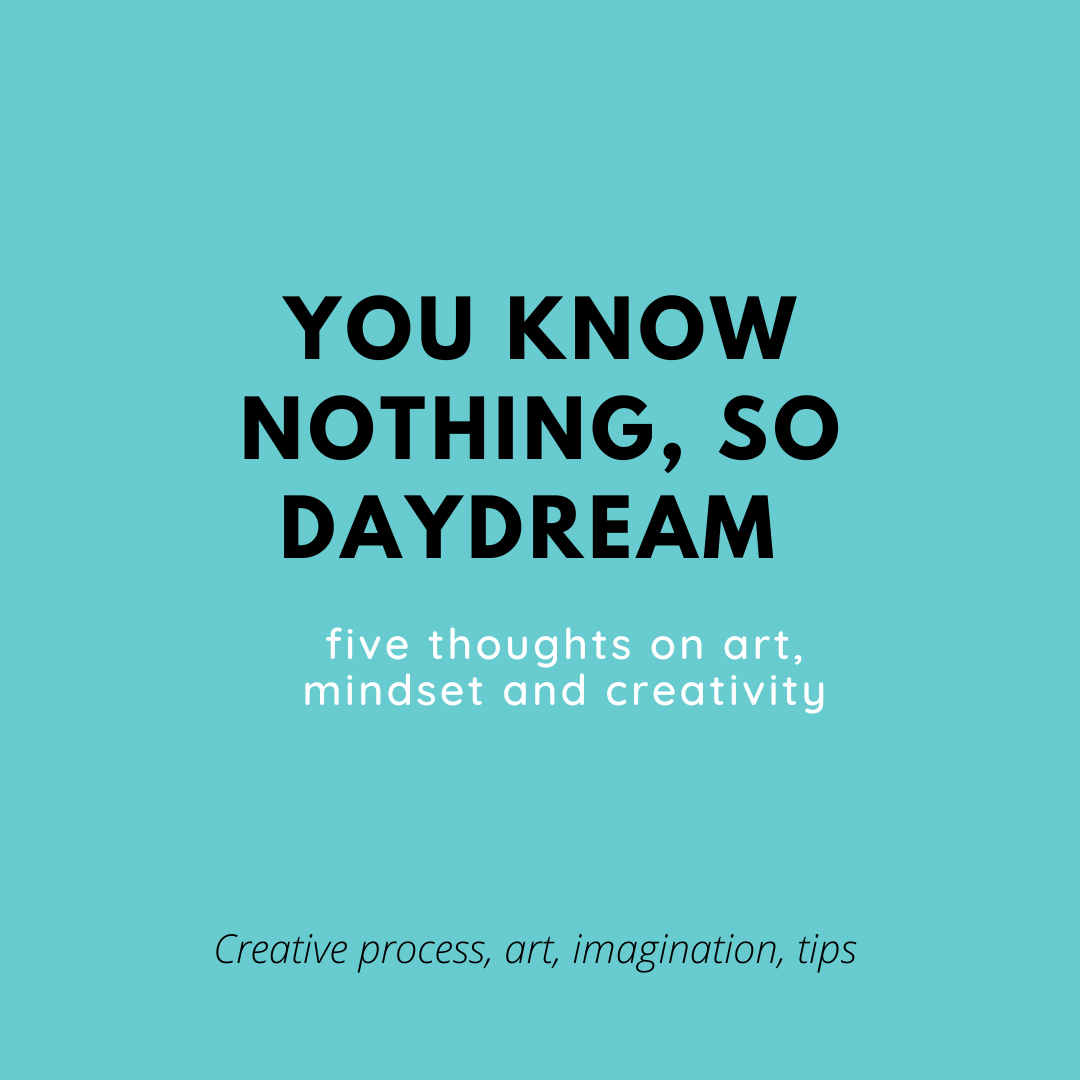Keep unfinished ideas accessible (five more thoughts on art, mindsets, and creativity).
Get drowsy.
Get Freudian. Get your unconscious and subconscious going. Keep a pen and paper…or, fine: your phone - to scribble down those hazy thoughts you get during the night, or during napping, or when your mind isn’t focused on doing something. Those can be invaluable in approaching a challenge or problem differently. This is not any kind of an original idea. But, like a lot of good ideas, it’s one that’s easy to forget or lose track of. So here it is as a reminder. It sounds weird, but it’s true: we’ve probably all got some pretty interesting thoughts playing and seek with our consciousness, so sinking into slumber and trying to seize a few of the extra-good ones before they sneak away again…sometimes it’s a great way to get fresh perspectives or ideas. But do not trust yourself to remember. You probably won’t. Write. It. Down.
Keep an unfinished idea around.
You probably have a lot bad ideas. If you do, that’s a good thing. Some ideas might stay bad. But other ideas need to keep hanging out for a while, like a lingering party guest. Maybe that’s a terrible analogy. Or…maybe that lingering party guest will stay long enough to make a great breakfast?
You might ride one idea all the way to completion in some sort of linear fashion. But a lot of ideas aren’t ones to just ‘get worked out.’ Some things need to simmer, to stew, to sit and set and even stagnate. Maybe there’s better, or other ideas, that need room to breathe.
You don’t have to toss out your bad ideas. Find a way or a place to keep them so you can set them aside and return to at some point. Maybe there will be a right time that will happen suddenly. Or maybe you’ll keep cycling back around to it and keep adding, tweaking, modifying.
That’s what I do in writing stuff like I’m writing here: I have big long lists and snippets of things on backburners, and when I have a thought, I can go grab it off the back burner, and either add to it or finish it. Sometime I’m satisfied enough to call it complete, other times I stick it back on the burner, far back, and make sure I remember it’s there, without devoting attention or time to it. But it’s there. It’s around when I need it.
Cut the boring stuff.
It’s fairly easy for me to write something long and sort of interesting.
It’s very difficult for me to write something short and very interesting.
What is the point of what you’re doing?
Who are you doing it for? Seriously. Who is your audience? Who would you like to be your audience? Don’t give a dull and broad answer. Have a serious think about this. Just like it’s never true when someone says “I listen to pretty much everything,” it’s also not true when you think of a potential audience as being…everyone.
This takes a great amount of courage, moxie, and willingness to acknowledge my hypocrisy in writing this. Can I answer this question well?
Not really. But I keep asking.
Don’t stagnate. Hang out with kids.
If you’ve gotten good at something, then you’ve gotten familiar with it. And if you’re familiar with it, then it’s a short step to complacency. Know what’s really good at helping not become complacent?
Know who is really good at not being complacent?
Hanging out with children. Not just observing or studying or watching: interacting, playing, talking. They are fresh. They are full of freshness because they are changing, they are growing, they are moving in so many different ways.
They are curious and fresh and have a thousand ideas you haven’t thought of. Of course ‘children’ aren’t some homogenized group who all think the same, but there are commonalities. Young children aren’t jaded or dulled by complacency.
They’re growing in many ways. At every age and stage, there are opportunities to keep growing. As with much of life, learning things is less about something new than it is being reminded of something we once had embedded.
Being actively involved and engaged with children reminds us of the roots we were all born with and then slowly let slip away: the roots of growth, the the roots of curiosity and imagination, the roots of sincerity and learning because it’s fun.
I want to be an ocean, not a pond.









